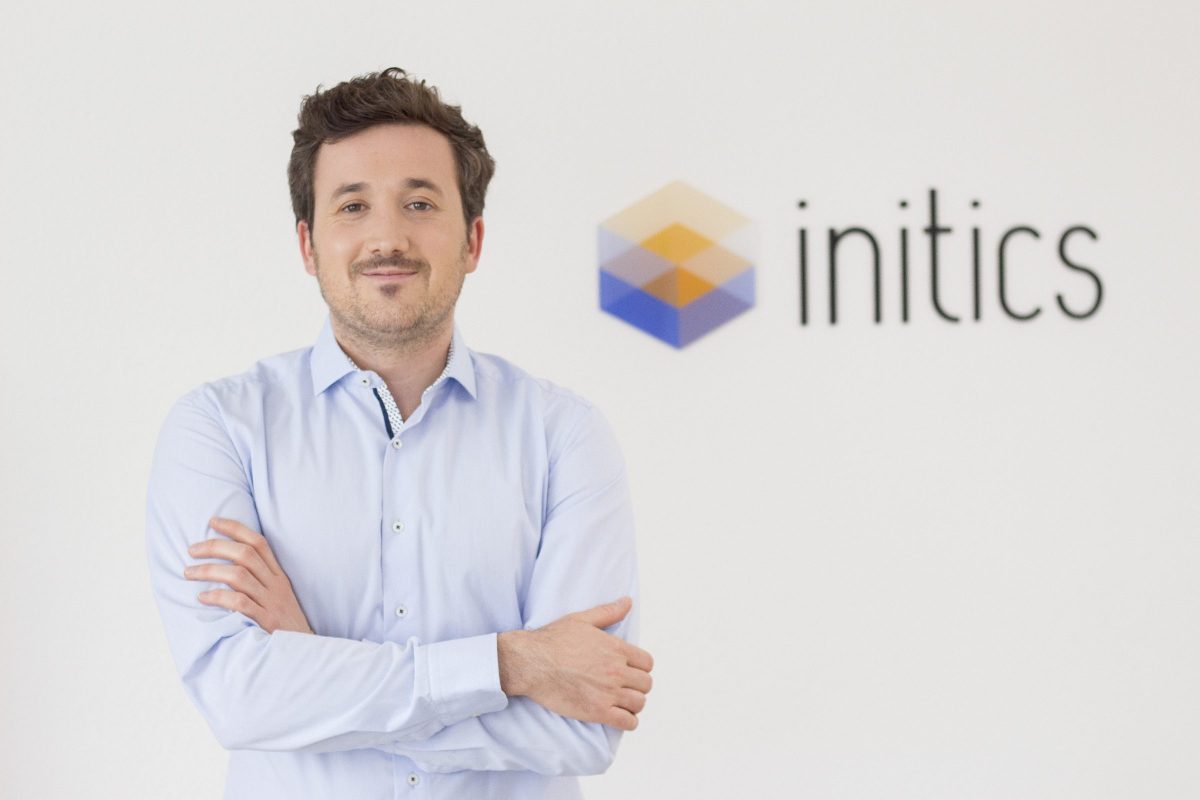Munich Startup: What does Initics do? What problem do you solve?
Julian Kowatsch, co-founder and managing director of Initics: With our EDI software initdata.io, we ensure that electronic data interchange (EDI) is also used by small and medium-sized companies. In many companies, a lot of time is spent every day typing documents such as invoices or delivery bills, accepting orders and sending quotations. With the help of our solutions, we automate recurring document processing procedures. We can do this classically via EDI. But other ways have often proven more efficient, such as handling order acceptance using a streamlined B2B order app. Or simply reading PDFs via OCR (optical character recognition, editor’s note) and transferring the data back into the company’s software system in EDI format.
Initics wants to optimize electronic data exchange for companies
Munich Startup: But that’s nothing out of the box!
Julian Kowatsch: It’s been around for a long time. EDI has actually been around for half an eternity. The first “EDIFACT” standard was adopted as early as 1988. That brings us to the problem: The technology developed before the advent of the Internet. EDI connections are still complex to set up and very often still use old technologies and structures.
With modern solutions, we have made it our goal to replace classic EDI processes where it makes sense. And yes, OCR solutions and ordering apps are a dime a dozen… it’s just that many who have used them have found that there is a lot to adapt and optimize. As a company, you don’t want to bring the twentieth IT project in-house and spend weeks or months setting up software; instead, you want to benefit quickly from IT solutions. That’s exactly what we do. We board our customers within a day with our solutions that cover exactly the needs that companies have.
Munich Startup: What’s your founding story?
Julian Kowatsch: We, the four founders Sebastian, Anton, Stefan and Julian, previously worked for a Munich-based ERP system provider and had some contact with EDI during this time. Some of the projects were tedious and dragged on for a very long time. This was mainly due to the old structures and exchange procedures we had to work with. That’s what motivated us to tackle the topic of EDI.
Self-financed, and proud of what has been created
Munich Startup: What have been your biggest challenges so far?
Julian Kowatsch: We are self-financed, which means we have no external financier. The biggest challenge was to develop a comprehensive and modern software solution and to cross-finance the whole thing with IT consulting in parallel. We have now reached a point where we are proud of the products we have been able to develop during this time.
Munich Startup: Where would you like to be in one year, where in five years?
Julian Kowatsch: We are currently trying to minimize cross-financing from areas other than the actual EDI projects and are on the right track. Our goal is to generate 100% of all revenues from our core business next year. We have a lot of fun getting to know new industries and working out optimization potential in document processing for the respective industry. Therefore, we have not made it our goal to make an exit in the next five years. Rather, our goal is to broaden our reach and serve more industries with our innovative solutions for automated document processing.
Munich Startup: How have you experienced Munich as a startup location so far?
Julian Kowatsch: We haven’t been very active in the startup scene so far. That’s why we can’t say much about Munich as a startup location. But we love Munich as a city with everything it has to offer.
Munich Startup: Public transport or bicycle?
Julian Kowatsch: Definitely a bicycle. In winter too.




